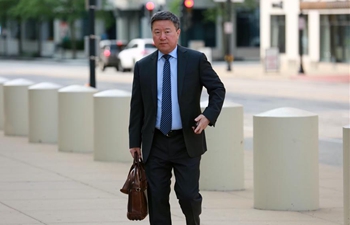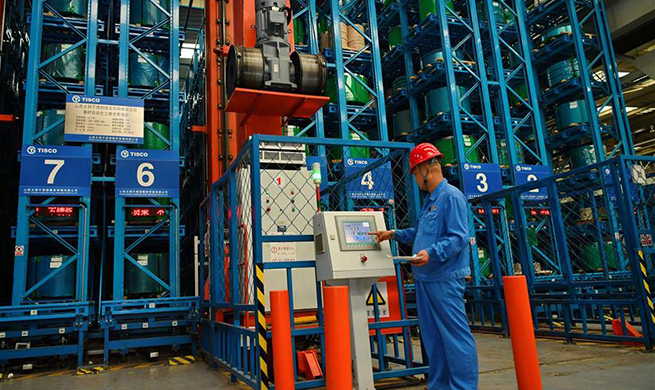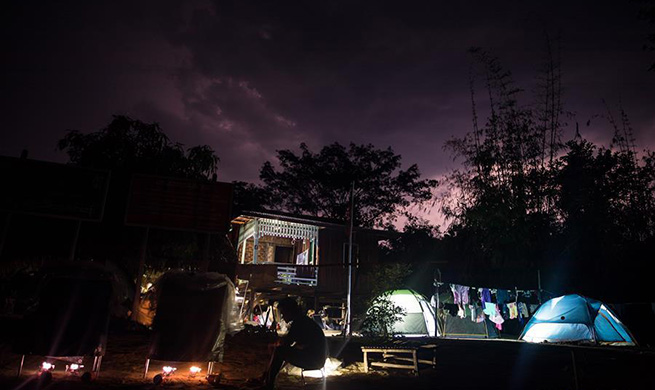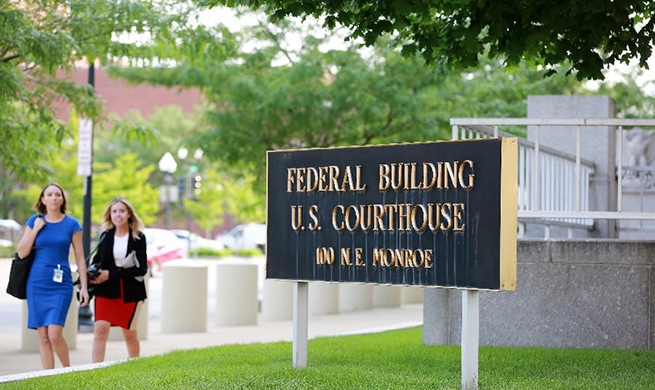ROME, June 4 (Xinhua) -- An unexpected threat from Italian Prime Minister Giuseppe Conte to resign his post has all eyes on the head of Italy's largest political party and his plans for a controversial flat tax.
The flat tax proposal from Matteo Salvini, head of the nationalist, right-wing League and the country's deputy prime minister, has become a major source of contention in Italy.
Salvini wants to make the universal 15-percent income tax law, but the measure has limited support within the populist Five-Star Movement, the League's coalition partner in the Conte government. Additionally, economists say a flat tax could cut government tax revenue by as much as 30 billion euros (33.5 billion U.S. dollars) at a time when Italy is already struggling to keep its deficit within the limits in European Union guidelines.
In that context, Conte -- a former law professor who is not a member of either of the parties in his coalition -- called on the two parties to work together quickly and efficiently or he would step down from his office and return to private life.
"The prerequisite is contained in a clear formula: sincere cooperation," Conte said at Monday's press conference. "I am asking both these forces to make a choice, and make it clear if they still want to honor the obligations of the (government's) contract."
"Basically, Conte said, 'You two sides work together or I will quit,'" Luigi Curini, a political scientist at the State University of Milan, told Xinhua. "It's a bold statement, and it's significant that it was made at a press conference and not in a parliamentary address or behind closed doors. Conte sent a message to Salvini and he wants the public to know what is happening and where he stands."
Franco Pavoncello, president of John Cabot University in Rome and a frequent commentator on political issues, said he does not think Salvini will hasten Conte's departure and the collapse of the government.
"Salvini is in a very difficult position right now," Pavoncello said in an interview. "If the government collapses, things will become very unstable in Italy. Interest rates on government debt with shoot higher, and it's not clear he would gain any political benefit."
If Conte were to step down, the two possibilities are that Italian President Sergio Mattarella could appoint a government of technocrats, or new elections could be called.
A technical government would have a hard time passing the country's 2020 budget, which will likely be highly scrutinized by the European Commission to make sure deficit levels were within the commission's guidelines.
New elections could prove even more difficult unless they could be organized soon enough that the new government could be in place to draft and pass the 2020 budget.
"Under normal timing, if elections were called this month they'd take place in September," Curini said. "Italy has never had a general election in September because of the problem of the budget. There would have to be some way to have snap elections, but then it wouldn't be clear how the fall of the government would impact the choice voters make."













